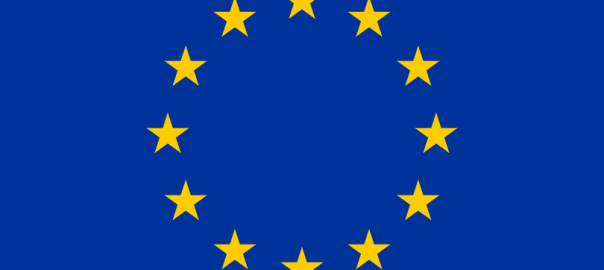Chiara Fonio (ITSTIME senior researcher) attended the Surveillance Summer Seminar hosted by the Surveillance Project at Queen’s University in Kingston, Ontario, Canada. The seminars were led by three faculty: David Lyon (Queen’s University , Canada ), Kevin Haggerty ( University of Alberta , Canada ) and Kirstie Ball (The Open University, UK ). The issue of surveillance was explored from a wide perspective through lectures, discussions, group sessions and film screenings. About 20 graduate students (PhD and MA candidates, but also Post Doctoral Fellows) of 9 different nationalities attended the excellent lectures and actively participated in the discussions. All the students were encouraged to write a 2 page research proposal and to share theoretical, methodological and ethical issues within their group. At the end of the week, each group (DNA, facilitated by David Lyon, RFID, facilitated by Kevin Haggerty and CCTV facilitated by Kirstie Ball) presented either collective goals or individual research projects. It was a stimulating, productive and intensive week. The seminars offered her the opportunity to meet (or reconnect) with excellent scholars who gave Chiara helpful suggestions, insights and feedback. Moreover, she met young scholars she would be more than happy to work with. Different academic backgrounds, along with the willingness to learn from each other, made the seminars a really unique experience. In particular, the week was filled with social networking with graduate students. Some of them are her area of study (CCTV) and they are planning an exclusively CCTV oriented conference for next year in London. Besides the event, during the seminar they discussed methodological issues and the proliferation of video surveillance in different countries (Canada, Mexico, UK and Italy). Overall, she was pleased with all the presentations, discussions and group activities. It was a privilege to work with surveillance studies scholars and she is hopeful for future collaboration
Left wing terrorist groups in European countries: a threat still alive – by Maria Alvanou
Fighting global terrorism is considered to be on the highest place in the agenda of the EU security decision makers and authority officials. European countries, especially after the Madrid and London attacks are struggling to prevent and thwart operations of this huge terror magnitude, sponsored by Al-Qaeda and its affiliates. Yet, it is not true that the security problem for EU countries emerges only from ‘outside inspiration’ and only from the Jihadi menace. In fact domestic, ‘traditional’ left wing terrorist groups do continue to pose a security threat.
Surveillance and identity: towards a new anthropology of the person
In the last decades surveillance and security tools, from cctv to ID cards, have grown to unpredictable levels. From close spaces, such as airports and malls, to urban contexts, our identities have become mere physical features constantly monitored by the penetrating eyes of security devices. The complexity, the nuances and the essential social components of identity are often reduced to ascribed characteristics. Identities have turned into “transparent” and naked bodies, legitimately scrutinised and divided into “pieces”. This simplistic approach could lead either to social exclusion of ethnic groups usually associated with deviant behaviour, or to a more general lack of concern for the integrity and the dignity of the person as a whole. The paper aims at analysing this new and inadequate anthropology of the person by focusing on different examples, such as biometrics and data banks, that emphasise the fragmentation of the body and the risks related to this reductive approach.
DOWNLOAD LINK : Surveillance and identity
Symbolisms of basic islamic imagery in jihadi propaganda – by Maria Alvanou
The proverb “one picture is worth a thousand words” summarizes the importance of image in the field of communication. The tragic events of September 11, the attacks on Madrid and London highlighted the importance of understanding the ideology and methods of jihadi groups. There is a lack of information on modern imagery associated with political Islam, especially imagery produced by radical and violent extreme Muslim groups. These organizations have had a brief but prolific history in the production and distribution of visual propaganda, and have arguably created their own distinct genre of Internet-based Islamic imagery. Visual propaganda is more than a host for textual messages; it is an expressive medium which communicates ideas just even more effectively than writing. Jihadi imagery is a primary vehicle for the communication and diffusion of jihadi ideas, an essential tool utilized by radical terrorist organizations. Therefore, understanding how these images work, what ideas they convey, why they are employed and what responses they may elicit, is vital to the struggle against the influence of jihadi organizations and their violence. Below are examples of basic Islamic imagery and its symbolisms……..
Il child tracking e le nuove frontiere della sorveglianza elettronica – by Chiara Fonio
Il governo giapponese ha investito circa 8 milioni di euro per un progetto sperimentale in 20 regioni del paese. Nei prossimi anni saranno installati dei lettori Rfid (Radio Frequency Identification) sui cancelli delle scuole, ai semafori e sui lampioni dei parchi per “salvaguardare” i minori. Gli Rfid sono in grado di interagire con i tag Wi-fi portati in tasca dagli scolari: in questo modo i genitori saranno informati via sms o su un sito web degli spostamenti dei propri figli.
The right to compensation for victims of terrorist attacks in italian legislation – by Maria Alvanou
Since the ‘80s and onwards, the crime victim received particular attention in criminal policy and subsequently also in criminal legislation. This led to legislation protective regarding possible adverse impacts of criminal proceedings and supportive regarding compensation of material and immaterial losses caused. During the ‘70s, terrorism- then found mostly in the form of national, separatist and political terrorism- started to trouble European countries. The policy response was more or less restricted to tailoring police and criminal procedure laws to the new demands placed on law enforcement. It was only after the attack on the World Trade Center on 9/11 with its devastating consequences for civil society and the extreme toll on human lives, that more attention has been devoted to the question of how victims of terrorist attacks can be better accommodated. This process has been accelerated by the terrorist acts in Madrid in 2004 and London in 2005.
La manomissione delle centraline di bordo – by Nicoletta Anzoino
È la tecnologia CAN bus e connette sensori e centraline implementando la tecnologia drive-by-wire . La tecnologia drive-by-wire si basa sul concetto di rimozione dei collegamenti meccanici fra i comandi dell’automobile e le parti che fisicamente eseguono questi comandi. In questo modo, al posto che azionare i freni o lo sterzo in modo meccanico, i comandi di sterzo e di frenatura vengono inviati ad una centralina che, dopo averli elaborati, li trasmette agli organi interessati.
Muore anche l’Università – by Marco Lombardi
Questa mattina, 17 gennaio, la drammatica consueta abitudine induce a prestare poco orecchio alle notizie che arrivano da Baghdad e che informano del consueto macello di uomini. Senonché la strage all’Università mi richiama all’ordine, ancora per una consuetudine – che tuttavia lavora in modo apposto alla prima – la quale mi lega a colleghi e studenti di un Paese lontano in guerra, Paese che studio.
Dispositivi di Protezione Relazionale – by Davide Scotti e Vincenzo Irace
Il vigile del fuoco ha piena consapevolezza dei Sistemi di Protezione Individuale (DPI) che infatti lo proteggono in ambiente ostile, ma smessi quelli, spesso il rischio è che l’ambiente ostile rimanga all’interno del soccorritore, privo questa volta dei D.P.I. necessari alla sua tutela. Le iniziative di seguito proposte, come punto di partenza non certo di arrivo, si potrebbero considerare dei Dispositivi di Protezione Relazionale perché si impegnano a tutelare l’operatore nella sua attività di soccorso.
Relevant documents about critical infrastructures:
National Infrastructure Protection Plan (2006)
Council directive on Eurpoean critical infrastructures (2008)
E’ finalmente nato l’ Osservatorio per la Sicurezza Nazionale, un network per la Sicurezza Nazionale , promosso da CeMiSS e da Elsag-Finmeccanica, al quale ITSTIME aderisce.
The UK response to current terrorism. The financial element – by Nick Ridley and John Grieve
Since 2001 the UK law enforcement have held that it is essential not just to concentrate upon the suspects, means and motives, but also to consider the changing nature of the target. In stark terms, Bin Laden demonstrated the advantages retained by the terrorist:
- the element of surprise and choice of weaponry
- the ability to change targeting at will
- the option of returning to a target, if a previous attack was unsuccessful
- above all, access to individuals who are prepared to die in order to achieve their operational objectives.





